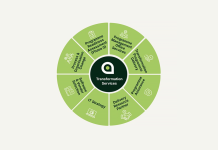Legacy IT systems are still a key operation for public sector organisations, these systems are now outdated, expensive to maintain, and vulnerable to security breaches. What can the Cloud do to change this?
Despite their outdated nature, many organisations still rely on legacy IT because updating and replacing it can be confusing and expensive. The transformation to modern cloud computing is a more efficient, cost-effective, and secure alternative.
What are Legacy IT Systems?
Legacy IT refers to an organisation’s existing technology infrastructure, including hardware, software, and related business processes. Over time, these systems become harder to maintain, more expensive to run, and increasingly difficult to update. They may no longer meet current security or compliance standards, making them a target for cybercriminals.
Legacy IT systems often require regular updates, patches, and upgrades, which are both time-consuming and costly. They are also known to be difficult to scale, meaning that as user demand increases, these systems struggle to keep up, leading to slowdowns and service disruptions.
They may not support modern cybersecurity protocols, exposing organisations to significant risk in an age where cyber threats are constantly evolving.
The challenges of legacy IT in the public sector
Public sector organisations, such as local authorities, are under increasing pressure to deliver better services with fewer resources. Legacy IT systems heighten these challenges by driving up operational costs and consuming valuable staff time. The complexity of managing these outdated systems often leads to inefficiencies, as teams spend more time on maintenance than on innovation or service improvement.
Security is a particular concern with many legacy systems being unable to meet modern security standards, putting sensitive data at risk. Public sector bodies, such as local authorities, handle personal data, including that of vulnerable individuals.
Legacy systems restrict an organisation’s ability to embrace new technologies that could streamline operations or improve service delivery.
The advantages of Cloud computing
Cloud computing, which refers to the delivery of computing services over the internet, offers many benefits over traditional IT infrastructure. These include:
- Cost-Effectiveness:
- Public cloud services typically operate on a pay-as-you-go model, meaning organisations only pay for the computing power they actually use.
- Scalability:
- Cloud systems can easily be scaled up or down to meet changing demand.
- Improved Security:
- Modern cloud platforms are built with robust security features, including encryption, continuous monitoring, and compliance with regulatory standards such as GDPR.
- Sustainability:
- Many cloud providers operate in hyperscale data centres that are highly energy-efficient.
- Hybrid Working:
- Cloud-based systems enable greater flexibility, supporting hybrid or remote working arrangements.
The Government’s Cloud first policy
To support the digital transformation of public sector organisations, the UK government has introduced a “Cloud First” policy.
This policy encourages public sector bodies to consider public cloud solutions as their default choice when procuring new IT services. By prioritising cloud adoption, the government hopes to improve efficiency, reduce costs, and enhance security across the sector.
Many organisations have successfully migrated to the cloud, leading to cost savings, improved service delivery, and better resilience when it comes to challenges such as the COVID-19 pandemic.
How to migrate from Legacy IT to the Cloud
A hybrid cloud approach allows organisations to continue using some on-premises systems while gradually adopting cloud services for other functions. This provides a balance between the familiarity of legacy systems and the modern capabilities of the cloud.
Organisations can also turn to frameworks such as the Crown Hosting Agreement, which offers a hybrid solution that allows public sector bodies to benefit from cloud-like efficiencies without fully migrating all systems at once.
Cloud computing offers significant benefits, including cost savings, enhanced security, and improved scalability, all of which are essential in the modern public sector landscape.











